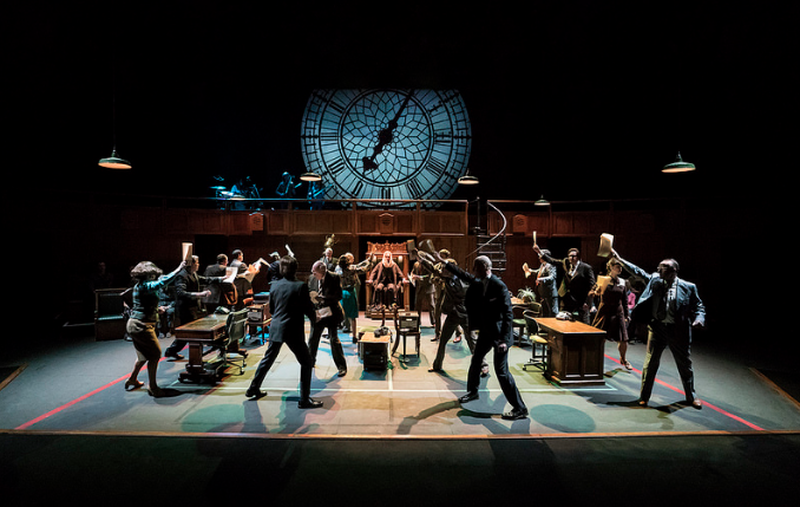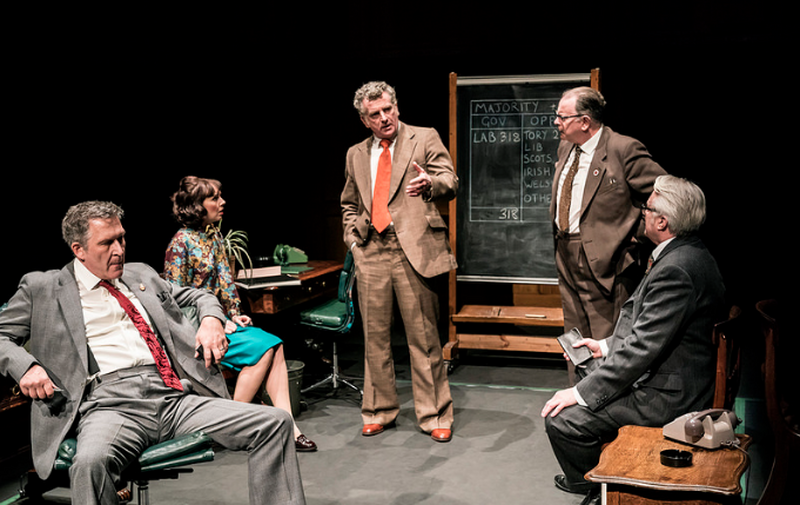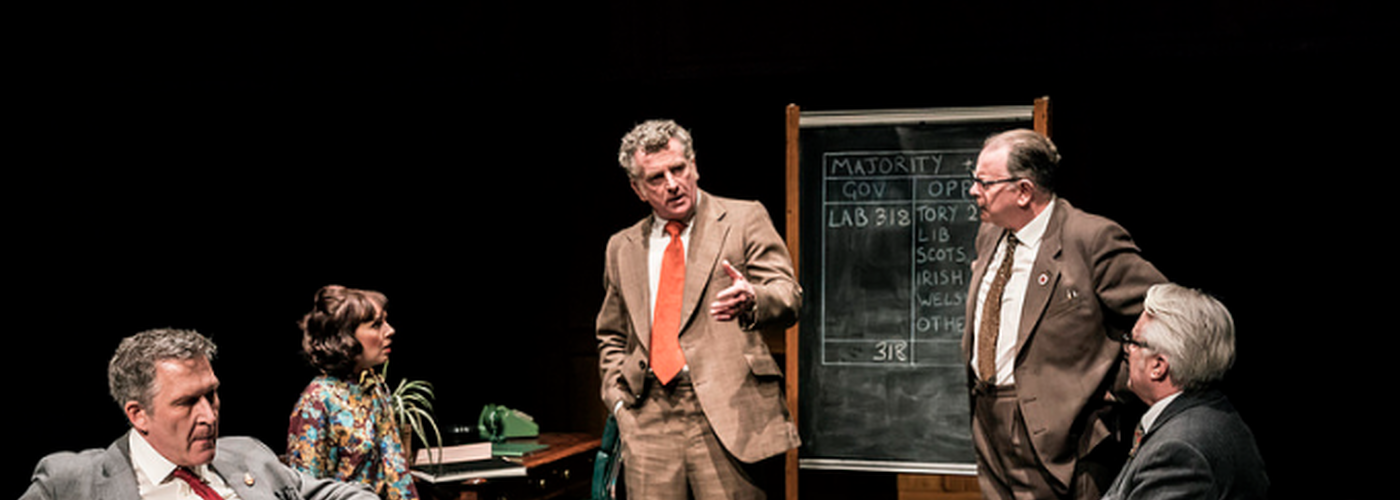Joan Davies sees a show about 1970s politics, which is packed with comedy and truth
****
James Graham’s writing is really the star of the show in this touring production of his 2012 play This House, currently visiting The Lowry theatre. Graham’s dramatic subject, the mid 70s minority Labour government and LibLab pact, humanises an intense story of deals and infighting and turns it into an engaging fast-paced and highly accessible comedy with wide appeal. He throws in a good helping of painless education too.
You might not recall the time. Things were different then: men wore their hair long and their trouser hems wide, women rarely wore trousers in the workplace, and their role was under review from all quarters. A minority Labour government had to rely on support from the smaller parties, aka the ‘odds and sods’ to progress its legislation. Eventually Labour formed a pact with the Liberal party and held on to the reins of government, finally succumbing to a vote of ‘No Confidence’ to bring about the May 1979 election, and Britain’s first female prime minister. Oh, and we were voting on European membership: maybe not so different after all.

Graham has taken real events and provided a lesson in how the backrooms of politics work - a mixture of the power of power and the necessity of compromise and team work - to give the audience a real feel for the realities of political success, and failure.
The large cast are timed to perfection. Standout performances come from James Gaddas as Walter Harrison, a blunt Yorkshire deputy whip, and William Chubb as Humphrey Atkins, Conservative Chief Whip. Some characters are recognisable as real people; hair and mace-brandishing singles out Michael Hesseltine, while others are an amalgam.
The Lyric stage and auditorium is huge, often too huge for some touring companies. The stage is effectively narrowed by allocating space to audience members, a double success which focuses audience attention and provides a different experience for those lucky enough to be seated there. However, I do feel this play is suited to a more intimate space. The actors project well, but at the loss of some sensitivity; for example, the motivation for keeping on keeping on through serious illness is slightly lost. I first saw this as an NTLive cinema stream broadcast from the National Theatre, when the play displayed more depth.

Graham chooses not to educate us on the legislation passed during this period. This includes matters we now take as a given: the outlawing of sex discrimination, the instigation of maternity leave, measures to protect workers from unfair dismissal, requirements that health and safety at work be taken more seriously, plus obligations placed on local councils to support those faced with the loss of their homes. Probably motivation enough.
There are plenty of local references too, with portrayals of Ann Taylor, the Member for Bolton West; Fred Silvester, a Conservative MP for Manchester Withington; and a brief mention for Stalybridge and Hyde’s Tom Pendry.
I’m interested in and involved in politics, as well as being old enough to remember the period from an adult’s perspective. Thanks to its pace and humour the play has a far wider appeal. Unless you’re totally averse to politics, I’d recommend a visit, perhaps sitting on the stage seats if available. It’s the most entertaining lesson in British civics you’re likely to have.
This House is at The Lowry until Saturday 28 April












